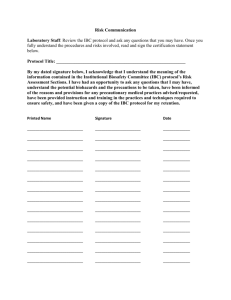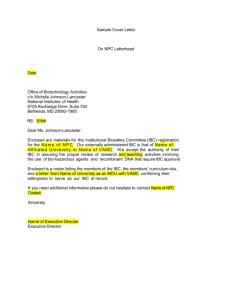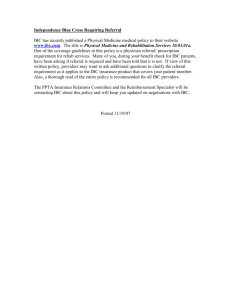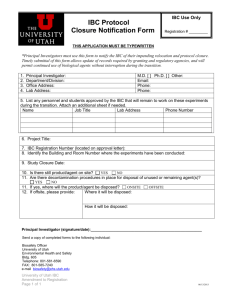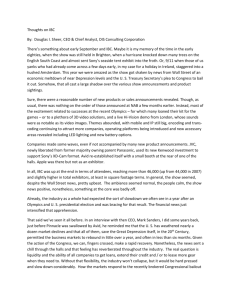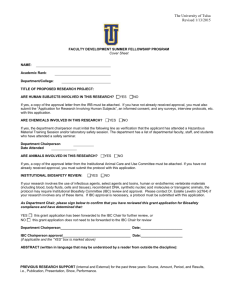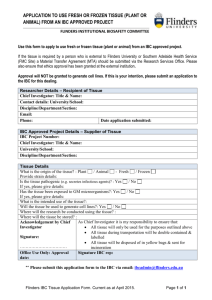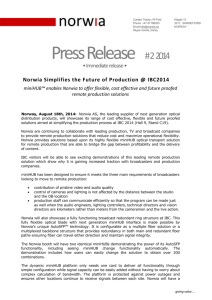COMMITTEE OF EXPERTS ON THE TRANSPORT OF
advertisement
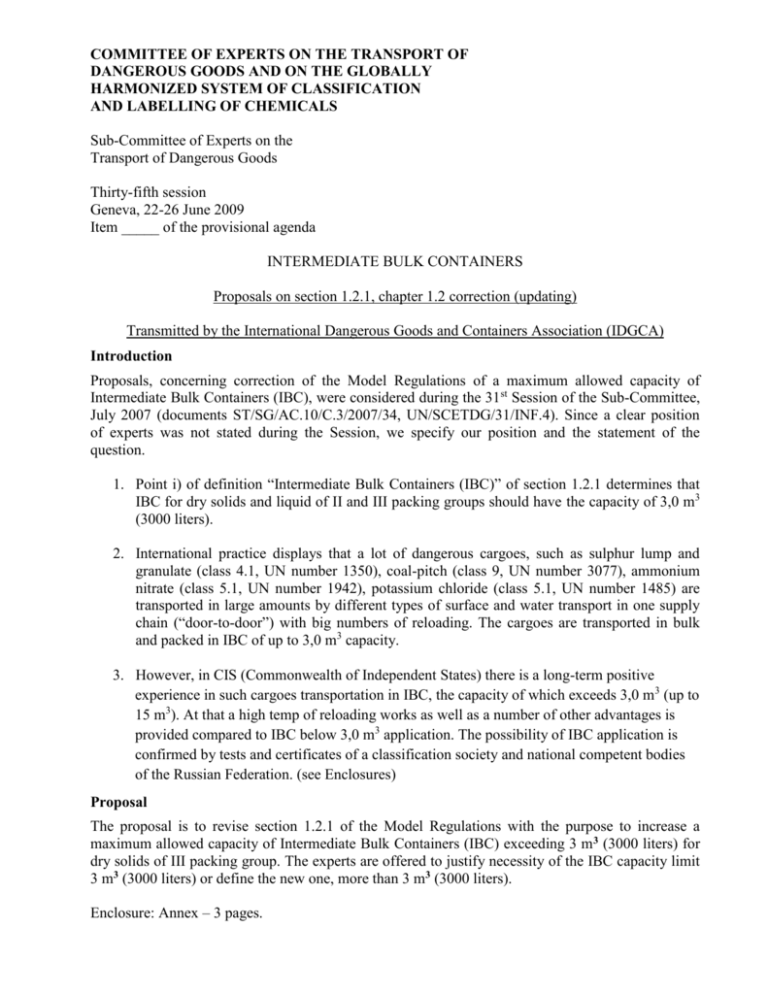
COMMITTEE OF EXPERTS ON THE TRANSPORT OF DANGEROUS GOODS AND ON THE GLOBALLY HARMONIZED SYSTEM OF CLASSIFICATION AND LABELLING OF CHEMICALS Sub-Committee of Experts on the Transport of Dangerous Goods Thirty-fifth session Geneva, 22-26 June 2009 Item _____ of the provisional agenda INTERMEDIATE BULK CONTAINERS Proposals on section 1.2.1, chapter 1.2 correction (updating) Transmitted by the International Dangerous Goods and Containers Association (IDGCA) Introduction Proposals, concerning correction of the Model Regulations of a maximum allowed capacity of Intermediate Bulk Containers (IBC), were considered during the 31st Session of the Sub-Committee, July 2007 (documents ST/SG/AC.10/C.3/2007/34, UN/SCETDG/31/INF.4). Since a clear position of experts was not stated during the Session, we specify our position and the statement of the question. 1. Point i) of definition “Intermediate Bulk Containers (IBC)” of section 1.2.1 determines that IBC for dry solids and liquid of II and III packing groups should have the capacity of 3,0 m3 (3000 liters). 2. International practice displays that a lot of dangerous cargoes, such as sulphur lump and granulate (class 4.1, UN number 1350), coal-pitch (class 9, UN number 3077), ammonium nitrate (class 5.1, UN number 1942), potassium chloride (class 5.1, UN number 1485) are transported in large amounts by different types of surface and water transport in one supply chain (“door-to-door”) with big numbers of reloading. The cargoes are transported in bulk and packed in IBC of up to 3,0 m3 capacity. 3. However, in CIS (Commonwealth of Independent States) there is a long-term positive experience in such cargoes transportation in IBC, the capacity of which exceeds 3,0 m3 (up to 15 m3). At that a high temp of reloading works as well as a number of other advantages is provided compared to IBC below 3,0 m3 application. The possibility of IBC application is confirmed by tests and certificates of a classification society and national competent bodies of the Russian Federation. (see Enclosures) Proposal The proposal is to revise section 1.2.1 of the Model Regulations with the purpose to increase a maximum allowed capacity of Intermediate Bulk Containers (IBC) exceeding 3 m 3 (3000 liters) for dry solids of III packing group. The experts are offered to justify necessity of the IBC capacity limit 3 m3 (3000 liters) or define the new one, more than 3 m3 (3000 liters). Enclosure: Annex – 3 pages.
